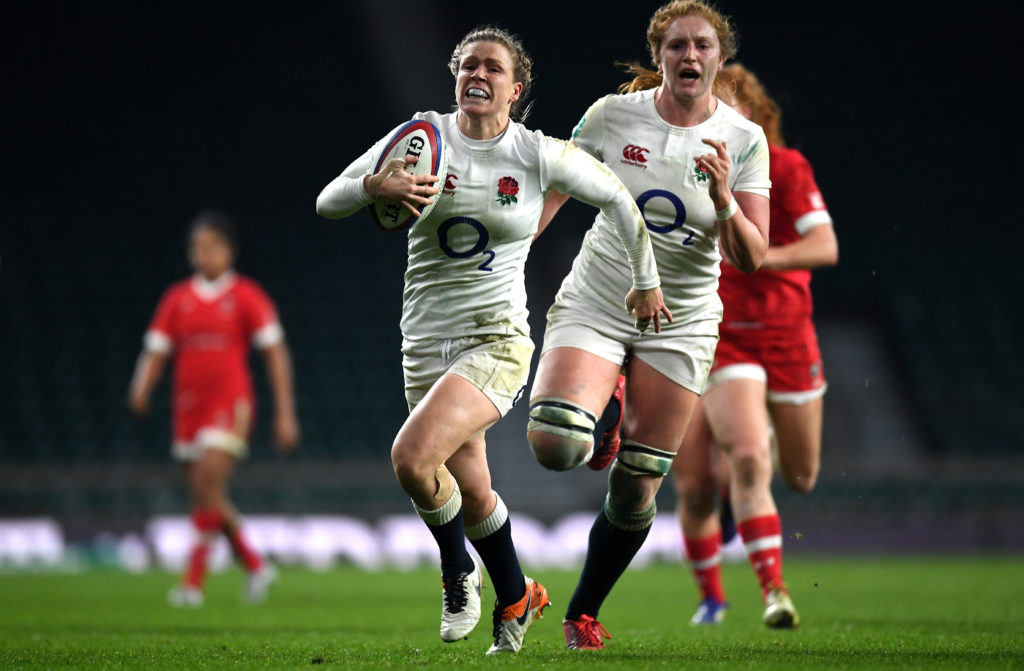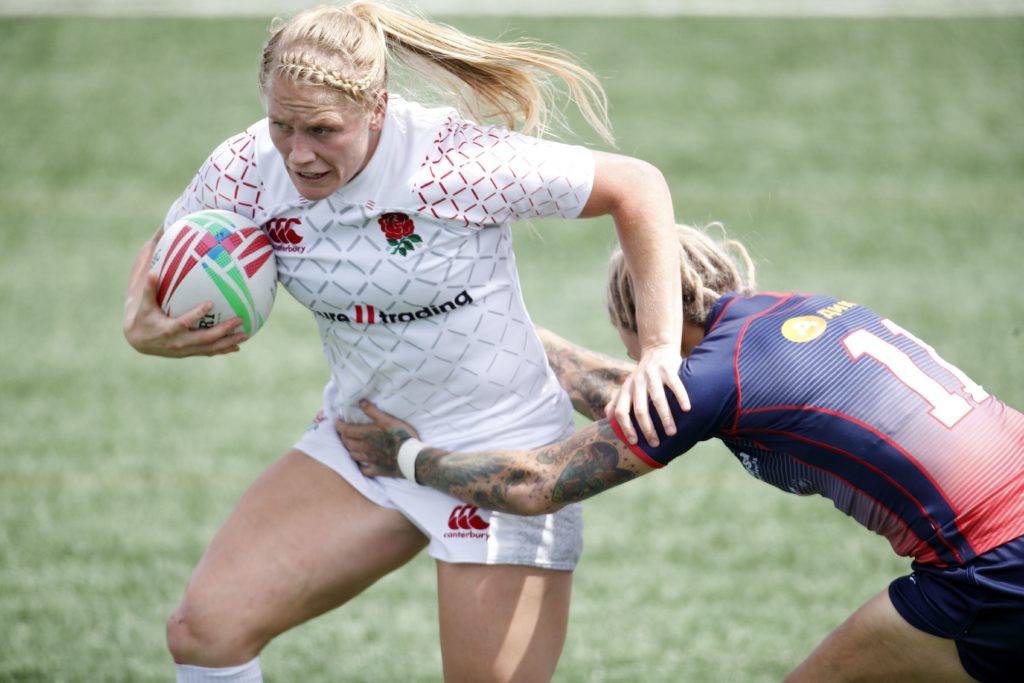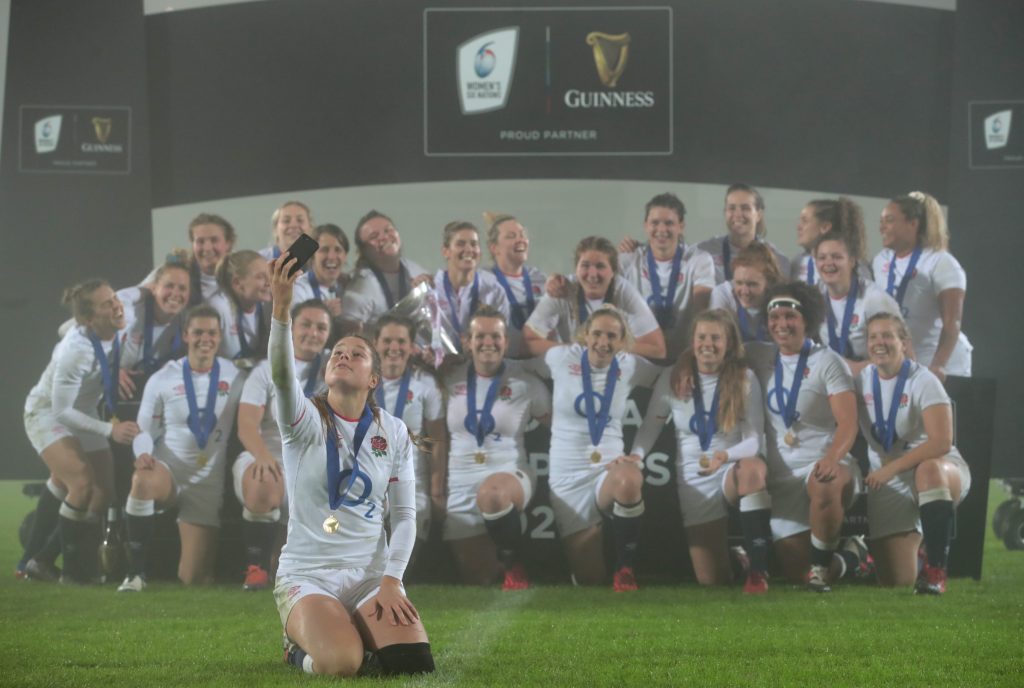During the pandemic, I’ve taken a step back to try to look at the bigger picture of how I can change things that are close to my heart. There’s a lot of passive support for women’s rugby but that isn’t effecting the change we need. I want to see action not just words.
I feel like a good place to start would be to change the narrative. I keep being asked, ‘Why do you feel like women’s sport and rugby has been affected so badly by Covid?’ In my mind, that rhetoric is a pretty negative starting point and I don’t agree with it.
To some extent the pandemic has actually given us a positive platform because it has ripped the plasters off and shone a spotlight on the disparities between women’s and men’s sport at a time when people are more comfortable asking the difficult questions. Social change has never been this empowered.
It’s time we focused on diversity and inclusion. It will never be quick and simple, but it’s definitely the time. Society, businesses and individuals are all rewiring how they survive and thrive, and this is where there can be a significantly positive gear change in women’s sport and women’s rugby in particular.
We all have the power to help generate change and I genuinely believe that no matter how small the pebble that is thrown into the ocean, ripples will form.
I have always been a huge advocate for gender equality and for years I have found it hard to sit back and accept the huge imbalance that female athletes experience in opportunity, exposure, support and respect, but I have never really known where to start.
However, this global pause has allowed us all to reflect on what is important in our lives. We all have the power to help generate change and I genuinely believe that no matter how small the pebble that is thrown into the ocean, ripples will form. Challenging times are often the catalyst we need for the biggest changes to occur.

So the question I would ask is what are we doing as stakeholders? By this, I mean the fans, the media, the governing bodies, brands, sponsors, players and even myself as an ex-international. What are we asking of each other and what are we all actively doing to move things forward – and not at the rate it has been going for the past 20 years, but at the accelerated speed our great game deserves?
In a recent interview, I talked about feeling like I have to go above and beyond to prove myself as a female when working on the men’s game. In saying that, am I suggesting the fact that I don’t believe I am good enough to be there because the women’s game and thus female players are not seen to be as good as their male counterparts? No, this couldn’t be further from the truth, but yet I have attributed my lack of confidence in my environment as a commentator to being a newbie and also that I am one of the very few females involved. Reflecting on my performances to date, my attitude and confidence have now changed.
Shining a light on reality is so important and this is not about portraying a ‘poor us’ routine. It is needed to educate people about the truth.
Current female players are also gaining confidence in using their voice and their platform to talk about the reality of day-to-day life as an elite rugby player and the challenges they are facing. Shaunagh Brown is doing some great work with BBC Sport and, in a recent interview, Alex Matthews opened up about the stark reality of her current situation. As someone who has lost her professional contract from England Sevens, Alex spoke candidly about having no money and that the single positive thing was that her only possession is a camper van. Story-telling and shining a light on reality are so important and this is not about portraying a ‘poor us’ routine. It is needed to educate people about the truth, which is sometimes uncomfortable to read but highlights the question, ‘How is this OK and what I would like to then happen? How can I/we change this?’”

Although women’s rugby has seen some relatively good column inches for a few years now, the tone and way in which we speak about elite women’s rugby and women’s sport in general is something that the media should improve. Yes, there is the important side of explaining where and how the sport is developing, but this should not be embedded within a match report about an elite match. There is also the way that the supporters of rugby and sport are reacting to articles, stories and posts. Rachael Burford has recently called out the type of ridiculous comments made when women’s rugby does make the headlines. Primarily over social media, these so called ‘fans’ are making derogatory and disrespectful comments towards players and the sport. Helpful? No. Funny? No. Harmful to the development of moving female sport on? Possibly.
Through various roles I have had over the past year or so, I have seen first-hand the work brands are doing to make a step change in what they are intending to do to support gender balance across all aspects of their business. But this is not an easy task as it often requires systemic change. O2 have recently announced they are equally splitting the support for the men’s and women’s game through their RFU sponsorship. This is the type of bold statement that should be made but what it actually means I am not privy to. Hopefully it means what it says, 50-50.

And finally the RFU. To be fair, they have done an incredible job supporting and enabling the Allianz Premier 15s to be played over the past three months – vital in a World Cup season. However, with support in its wider form, I often wonder why they are not utilising all of the amazing assets that they have within the female game.
Rugby has its critics but it is a great sport with great people involved. In relative terms, it would be a lot cheaper to support the women’s game and surely it matches up with what society is asking for – a genuine change in making the world a more equal place for everyone. But this isn’t just about money. It is about attitude. It is about respect. It is about creating opportunities for people to be inspired no matter who they are. It is about change.
More stories
If you’ve enjoyed this article, please share it with friends or on social media. We rely solely on new subscribers to fund high-quality journalism and appreciate you sharing this so we can continue to grow, produce more quality content and support our writers.



Comments
Join free and tell us what you really think!
Sign up for free